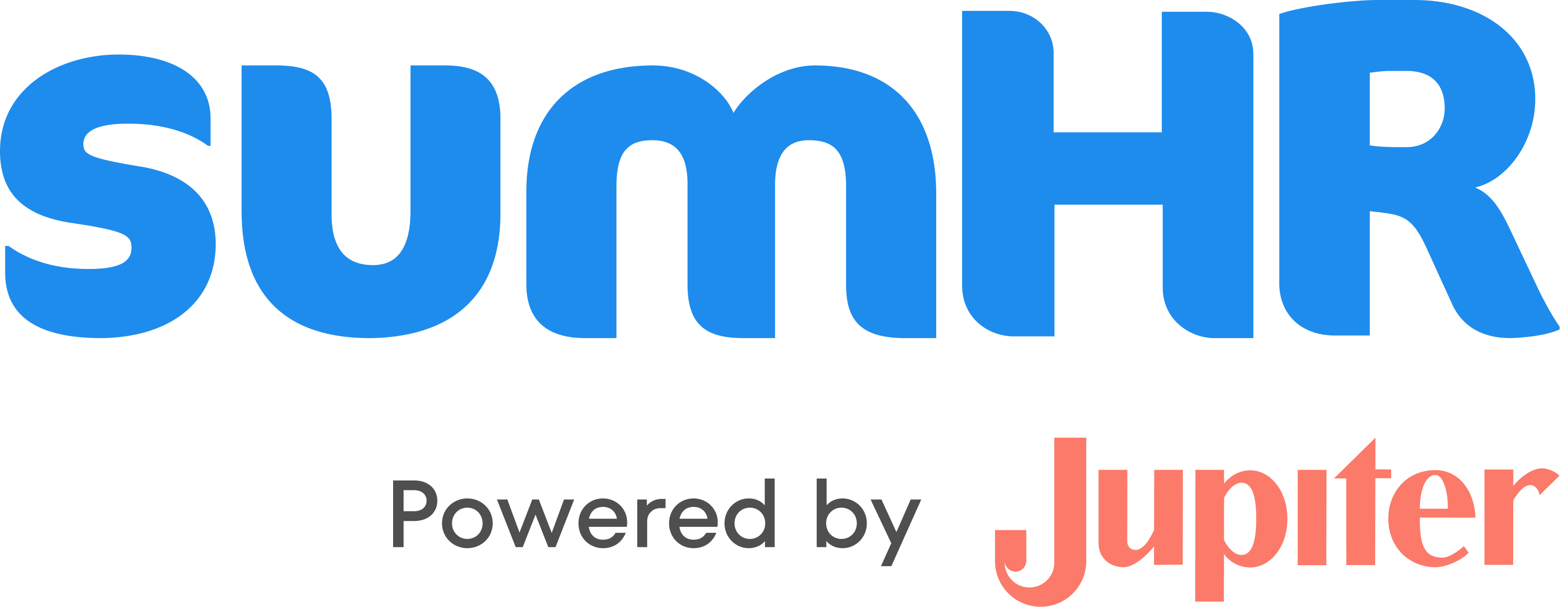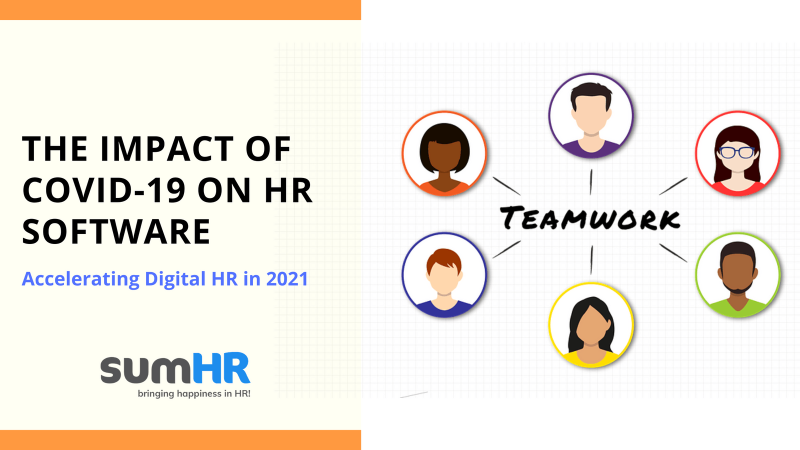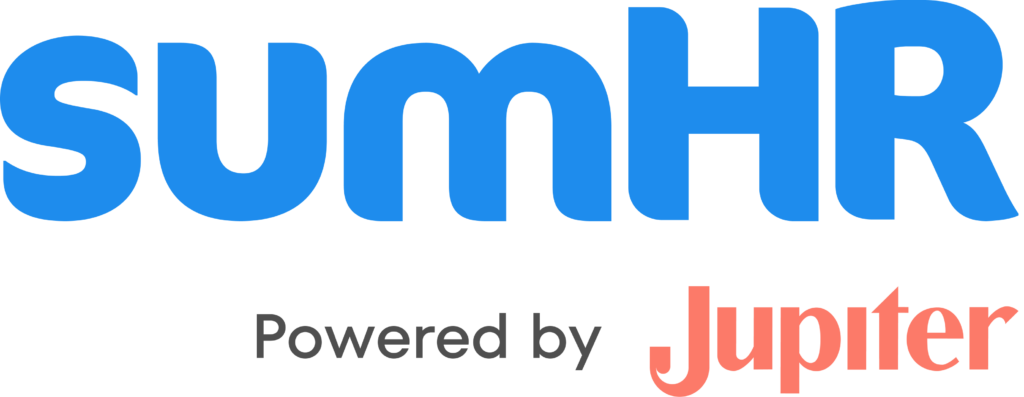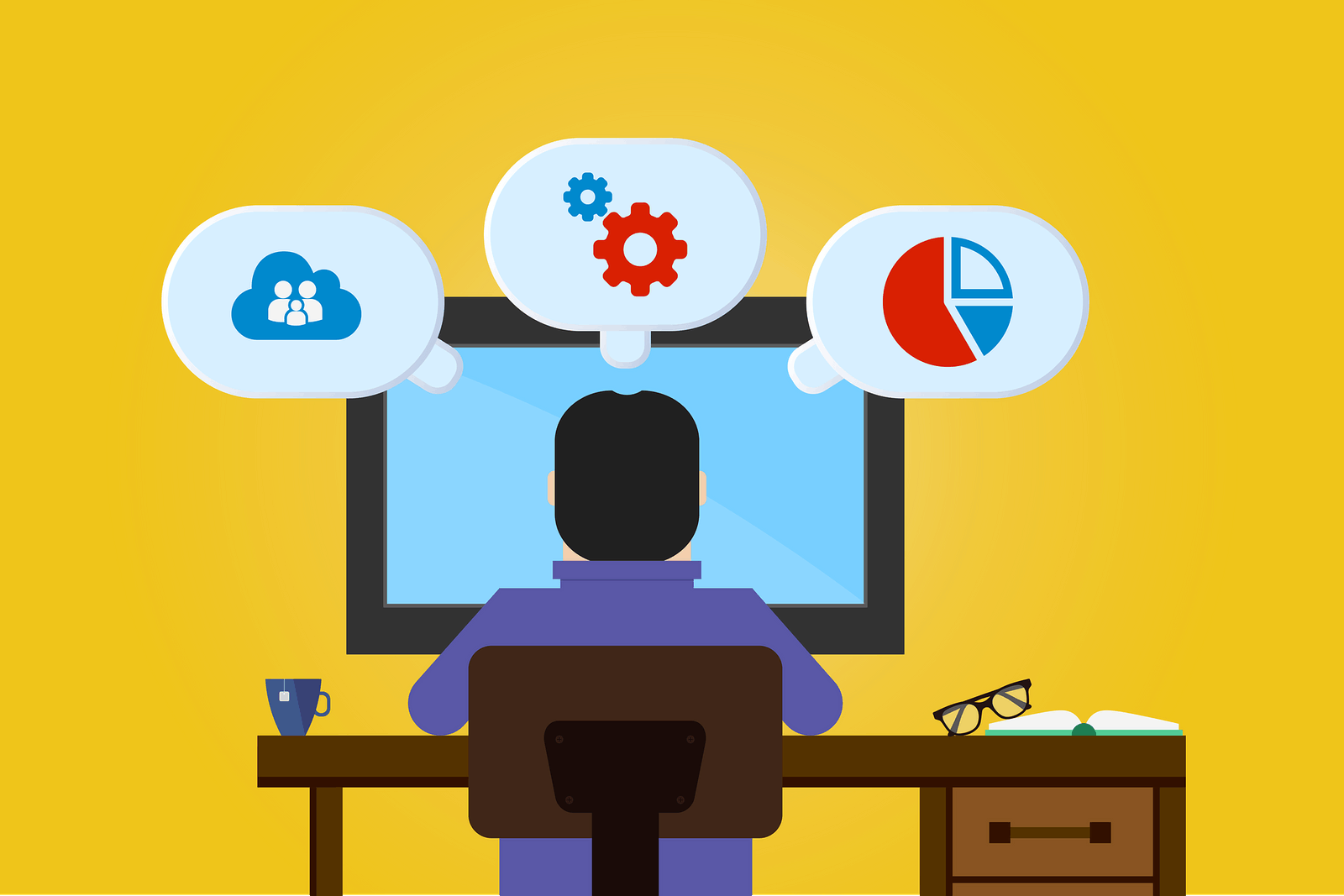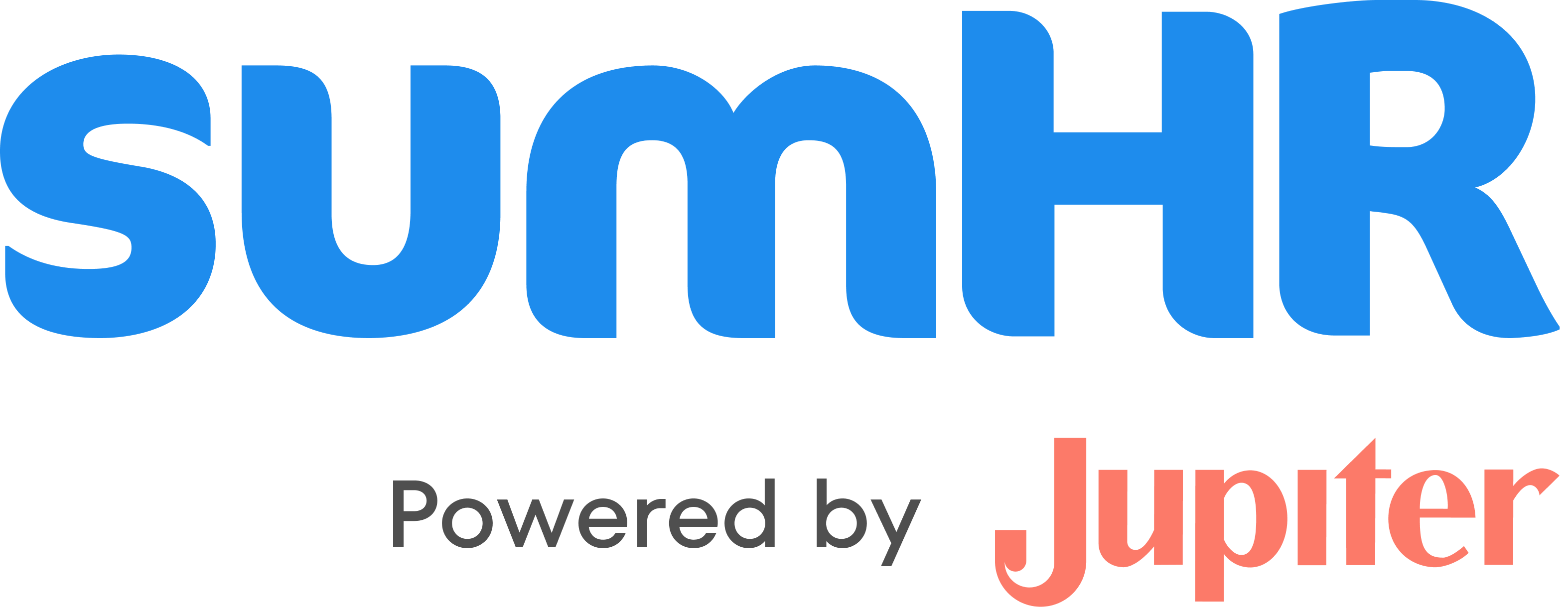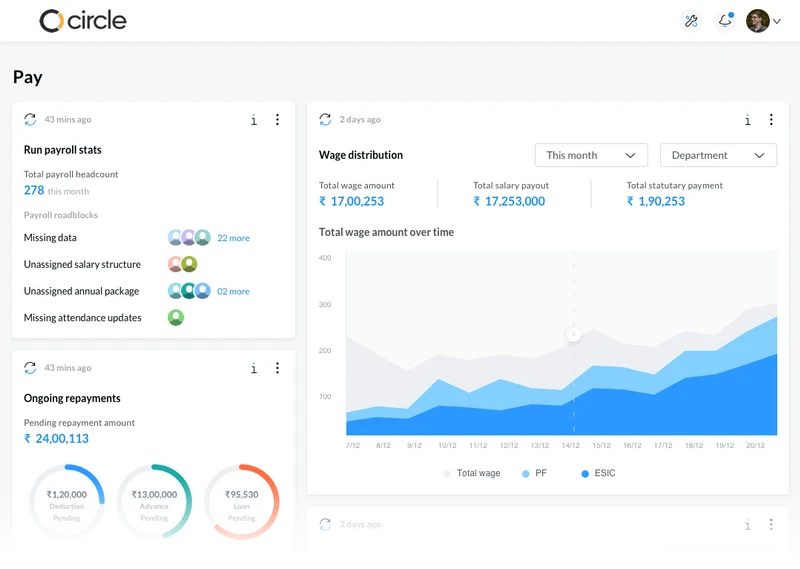The pandemic wreaked havoc on every industry out there, and if there’s one thing in common that every business has, it is an HR Team. If you are an HR yourself, you will probably know how important the HR team is to a company’s well-being and smooth functioning.
Unemployment was at a terrifying high of 9.1% in India in December, a steep increase from the reported 6.5% in November. Companies are hiring and firing erratically, desperate to stay afloat while operating according to the government rules and regulations.
In this era of business shutdowns and laying off of non-essential employees, when industries like travel and hospitality are struggling to make profits and other fields like e-commerce are trying to deal with the steadily increasing demands, it is the HR’s duty to make sure that the company stays working as normally as possible.
HR employees shoulder the responsibility of guiding companies, in particular small businesses, through these difficult times. If you are an HR manager, then you are a frontline worker in the commercial world.
It is, therefore, essential that we take a look at how HR departments from all over the world are responding to this crisis.
More number of employees are working remotely
The Covid-19 impact caused more companies to change their policies, allowing the employees to start working from their homes to keep them safe in this current situation.
This process has resulted in many companies giving their consent to keep the option of working remotely for the employees even after the pandemic is over.
This is a piece of positive news for employees since many of those who are suffering from health issues or have a disability can now easily work from home and continue giving their best to the companies, and it is also good for the companies as it will reduce their overhead cost.
The immediate changes in HR during COVID-19: New goals for businesses
Even though it is quite a hard time for managers, HR has been doing a lot – and they’ve been dealing with the unchartered territory, too. Can you imagine the difficulty of coordinating employees from different corners of the city and making sure all of them are satisfied and calm at a time when stress and anxiety are at an all-time high?
Priorities had to change, and they did – over 70% of companies are in the process of readjusting their HR priorities, putting employee health and engagement over unempathetic productivity.
Dealing with a situation that is completely unprecedented, HRs all over the world understandably made crisis response their top priority. As an HR, you probably are aware of all the complex decisions you would have had to make in the past few months.
The biggest part of this crisis response was to ensure that communication took place efficiently between employees in the company. Companies all over the world swiftly adopted virtual methods of conferencing, discussing, and working together, with software like Slack and Discord helping businesses stick together.
HRs also had to make sure that all the employees were working safely, and information about the company’s work progress and attendance, their health, infections, and locations also had to be monitored closely.
Dealing with a brand new set of employee issues is a lot of work, which is why many HRs all over the world came up with a global response team – take, for instance, ServiceNow in Europe, whose head, Sally Sourbon took the initiative to set up a team that dealt with the employee’s most pressing concerns with moving to virtual workspaces efficiently and reassuringly.
Reassurance here can mean many things – as employees fretted about the future of their family, their health, and about completing their responsibilities in an entirely digitized manner, HR strives to provide regular updates to employees, clarifying the new responsibilities and explaining how to fulfill each new task.
The biggest challenge to HR has been in the areas of coordination, integrating communication, and responding quickly and efficiently to queries. As HR teams are usually designed as a service delivery function, it is difficult for them to quickly adapt and respond to issues that require global and local coordination.
The military often says that central coordination wins wars – HR is quickly learning this important lesson. But most importantly, they are learning that people come first, profit second.
This is why HRs are relaxing rules, hours, pay, etc., and developing programs to train and empower those who are not technologically savvy.
Moreover, HR is also learning to distribute responsibilities and authority to HR professionals who work from home, and it is up to this big team to create live data collections so that when things do go wrong, they know exactly where to look.
Surely, as an HR, you’d know how important it is to have all the information you need when you are desperately troubleshooting.
HR software and cloud-based solutions for efficient management
At a time when employee productivity is jeopardized, HR needed to re-frame employee experience with new measures like cloud-based business solutions.
HR software has always been of great help, and surely, you and your managers use some sort of online services to manage your workforce. According to a survey, around 50% of companies had a remote work program before the pandemic.
Now, with the pandemic shaking things up, many HR tasks that were previously done with hands on deck are automated and completed by cloud solutions so that HR workers can focus on the employees’ lives – this involves checking up on the workforce individually, asking about family health, etc.
One HR professional reported that they spend about 70% of their work time in meetings or on calls.
These additional roles and labour time may test many HR teams’ ability to multitask, which is why many companies, especially SMBs, are accelerating the digitalization of their HR management solutions.
Recruiting will also be remote
In these unprecedented times, people have realized the importance of following the Covid-19 protocols, especially following social distancing.
And as an employer, you know how vital it is for companies to hire new employees for job positions.
Either the option of hiring new workers for your company may have gone out of the window, or you may have the requirement of hiring new employees now more than ever.
No matter which one it is, the pandemic must have affected your recruitment process in some way or the other.
1.No more face-to-face interviews:
The whole idea of allowing employees to work remotely is to avoid physical contact in the workplace. Even In the case of recruitment, you cannot meet the candidates in person to conduct the interview as the office is shut.
Job interviews are now being done through video calls resulting in a rapid change in the recruitment funnel.
Many organizations are opting for the applicant tracking systems allowing them the scope to effortlessly continue the recruitment operations remote.
2.Remote onboarding:
Onboarding is not an option for people already working in the organization. Therefore, they have implemented innovative solutions such as virtual onboarding programs for the new hires because of the Covid-19 crisis.
Right from inductions to team introductions, everything is possible virtually with the help of various HRMS available. The current pandemic situation has opened avenues to a lot of new experiments for businesses across the world.
3.Redesigning the whole recruitment process:
It is very unlikely that your company’s recruitment process is not affected post the virus outbreak. Whether you belong to the tourism industry or the IT sector, each has been affected widely by this pandemic.
Companies have been quick to react to this and make the changes in their recruitment funnel accordingly. They are transferring their operations to digital platforms to run their companies’ operations efficiently.
Cloud-based technologies, even if they are engineered to be learned quickly, are difficult for hundreds of employees to get the hang of.
It is still the HR’s job in most organizations to make sure that the entire workforce has access to the various components of the software and to walk them through the simplest of tasks, like how to clock in their work hours.
This means dealing with a lot of anxious texts and emails – one CEO confesses that the trick to staying sane during these trying times is to pick and choose when to respond.
In short, HR solution vendors and private HR teams all over the world had to step up their game, juggling their family life and their mental health to meet the new goals that they had to meet as a result of their pandemic. How are you holding up so far?
What is the impact on the HR management software business?
Studies are confident that the long-term prospects for the HR solutions market remain positive. The usage of cloud HR solutions is unlikely to thrive in extremely small businesses (with less than 50 employees), but more companies have started adopting these to stay afloat.
The adoption of such software has diminished labour costs and boosted productivity, which has helped the market growth to survive.
An MRFR analysis shows that there has been a surge in the usage of core HR software that manages employee information like payroll, leaves, clocking in and working hours, and health.
An impact analysis done by Yuki Uehara shows that because the SMB market has been affected detrimentally by the Covid-19 pandemic, there will be a higher drive for digitalization.
While the 2Q 2020 term impact results from HR management solution providers were somewhat of a mixed bag, studies show that the reduction in employment, especially among small businesses, is what causes this disparity.
One important factor that determined the figures last year was the mix of products offered by various solution providers and how much they were in use during the pandemic.
Companies like Workday and Ceridean works on payroll/HR software processes. Companies that relied more on payroll processing services understandably did not fare well because of the rampant lay off of non-essential employees.
The second factor was the kind of customers that each company catered to – small and medium-sized businesses, as you may already know, did not do well during the lockdowns. Businesses that worked with large enterprise segments like Workday and Ceridean did comparatively a lot better.
Paychex, which catered mostly to small and medium-sized businesses and specialized in payroll processing services, admitted to feeling the ‘full force of a double-digit decline in employment.
In short, your company’s experience depends entirely on the products you provide and the kind of customers you cater to, and very often, they are interrelated.
But because SMBs have been hit so hard, they will spend on HR software tools- a study shows that SMBs will spend a whopping $7.3 Billion in four years, which is almost a 70% increase from what the figure is today.
These will be adopted mostly by companies who want a flexible solution and can afford to work without meeting on-premise – for example, financial services companies.
Why hadn’t this been done before? Well, the truth is that HR management software usually handles very sensitive employee information that could cause a privacy breach if leaked.
Therefore, companies usually kept the software and the data on-premises. Better be safe than sorry, right?
But with the advent of cloud solutions that can prove that they prioritize the safety and security of the data they collect and store, SMBs can afford to hand the keys over to the software and save money with a one-time investment.
An added advantage, of course, is the money and time saved by avoiding paper clutter – automated tasks allow HRs to focus on the workers themselves, who desperately need reassurance at a time like this.
However, the pandemic has affected the HR companies and workers too – Nathan Christensen, CEO of Mammoth HR, and the Californian company ThinkHR admits that being on the frontline took an ’emotional toll’ on his team.
What is the future of HR in a post-pandemic world?
Now that COVID-19 is slowly loosening its grasp, we must ask ourselves what a post-pandemic world means for the HR Industry. We are delving into unchartered territory now, and surely, you feel the change brewing within your team too.
If your company operates in the Core HR Software market, then you are in luck – studies show that HR software market plans will register a 9% growth by 2027, especially over 2021
A reason that companies, especially small businesses, will be accelerating their investment in management tech is because of how complex HR has proven to be over the past few years.
A study that surveyed over 3000 SMBs all over the world showed that 33% of the respondents wanted to digitize their HR in the areas of marketing, financial analysis, planning, forecasting, and advertising.
For HR vendors, this is good news, but they need to understand that the opportunities vary based on the size of their clients’ businesses.
For example, SMBs account for 98% of companies in the private sector usually have low technical skill levels compared to bigger businesses. These firms with less than 50 employees should be the target for HR vendors.
There will also be a need for HR vendors to reach out to their new clients – many small businesses operate entirely on a grassroots level and depend on social media and reviews left by customers to build their brand awareness – to reach these potential users of the software, vendors have to use the right tools.
There will need to be extra thought given to manage performance in work from home environment – developing new tools for the same is the need of the hour during these tough times for a company.
For this, we will have to re-craft the goals, realign roles and KPIs so that employees can cross-function effectively. Additionally, they should not be assessed solely based on their functional responsibilities.
Redefining goals should be SMART – Specific, Measurable, Actionable, Relevant, and Time-bound.

Surely, you have heard this a million times in seminars and presentations, but these goals truly help in providing your workforce with a discernable milestone to work towards.
It is also vital that companies put increased trust in employees and continuously collect feedback to ensure that communication occurs effectively – without a physical work environment to keep them together, workers may feel a sense of alienation that we must avoid at all costs.
There is a good chance that businesses that can work from home will continue to do so for at least a few months more.
If you are an HR, who is juggling work, family issues, and the myriad of problems your company’s labour force puts forward, hang on tight!
Frequently Asked Questions
1. How COVID-19 may permanently affect HR?
The COVID-19 pandemic has been going on for almost 2 years now and there doesn’t seem to be an end to this either.
But because the virus is there around us for so long. it is bound to make some changes permanently.
One such change is in the field of HR.
For some of the companies, managing remote workers is not something new. But those companies that have adopted this work schedule recently have to make a lot of adjustments within their work environment to run smoothly and get acquainted with the same.
Companies are adopting new technologies and outsourcing their HR operation to run their functions smoothly.
2. Have HR Software purchases been affected by this pandemic?
The pandemic has caused a large number of organizations to shift their investments from traditional HR to outsourcing their HR operations to an HRMS vendor because of remote- working.
A recent study by the Sapient Insights Group 2020-2021 HR System Survey found that 15% of the organizations plan to decrease their investments in traditional HR and 28% will start outsourcing their HR functions. That’s because 35% of the respondents confirmed that they will continue this system of remote-working even after the pandemic ends.
The change in the work norms has elevated the HR technology, according to the 2020 HR Technology Pulse Survey.
If you’re stuck on deciding on which HR Software to OPT for. Here is a guide on Choosing the right HR Software for your business.
3. How can effective performance management be implemented during the COVID-19 pandemic?
With the outbreak of the coronavirus and the resulting impact on the economy, performance management processes have the burden to ensure the level of performance is high, keeping in mind the morale of the workforce.
There is a need for the right approach in keeping the workforce engaged and get the desired results as well.
- Re-craft your organizational goals and focus on the KPIs
- Follow the S.M.A.R.T approach when deciding the goals
- Continuous communication within your team and company is very important.
- Continuous Feedback from the employees as well as the employer.
- Trust the work of your employees
Additionally if your organization is looking for an HRMS which consists of payroll software, attendance management system, performance management module and much more. Get a free demo of sumHR here or start your 7 day free trial.
If you have any questions drop it down in the comments below and I will be sure to answer it.
